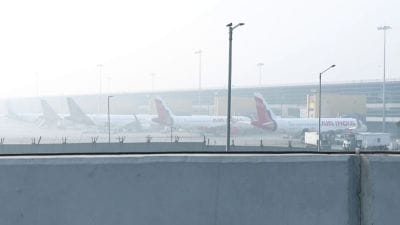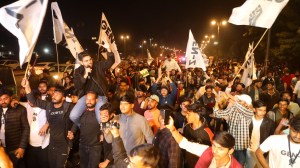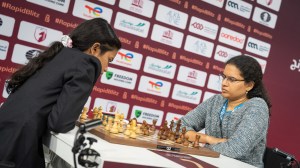Your Q His A
8226; The Indian Army is reported to have finalised a proposal that would allow officers on short service commission to serve for 14 years ...

8226; The Indian Army is reported to have finalised a proposal that would allow officers on short service commission to serve for 14 years instead of the earlier five years. This hardly remains 8216;8216;short8217;8217; service; and they would retire in their mid-thirties without a pension. Why is the Army resorting to this retrograde step by ignoring the basic principle of a short service commission? Would it not be inevitable that pressures and rationale for taking these officers to pensionable service would increase, ultimately nullifying the short service concept and necessity?
No clear official explanation has emerged in the public domain so far on this issue, and hence we can only make an assessment with the bare indication of facts and basic principles. Like the extension of service from five years to a second tenure to complete 10 years service, the second extension to 14 years total would also be based on the officers volunteering for such an extension and the Army taking a decision on the basis of his performance and the needs of the service at that time.
With a 14,000 officer shortage in the Army 8212; a shortage that seems to be increasing since the 1980s rather than reducing 8212; this should help, though to a very small degree. This seems to be a major factor in the evolution of the proposal. But by its very nature this would an ad-hoc short-term solution to a long-term problem which we seem to be unable or unwilling to solve in spite of solutions staring us in the eye.
Since the extension of short service would be of voluntary contractual nature, there would be no reason for demands to extend this further to pensionable service. But moral and even political pressures would undoubtedly develop and it is reasonable to assume that sooner rather than later, further extension to, say, 20 years should be expected under this scheme of things. As it is, the officer volunteering for a third term to serve to 14 years, that is, to around 35 years of age, is likely to be one who finds embarking on another career in civil life difficult at a time when his children would be young.
The very logic of short service commission is to provide flexibility in manpower management, have a large number of officers at younger age profile who would serve in the ranks of Lieutenant to Captain 8212; the zone where the current shortages are. It is inevitable that in the third term of short service commission the officer would be promoted to the rank of Major with a consequent increase in entitlements.
As it is, we have added to the infrastructure needs like accommodation, medical and education facilities for the service families by employing 90 per cent of the officers beyond 25 years of age compared to 85 per cent below that age a few decades ago. Extension of short service would only add to that burden prolonging the shortages and increasing the cost per head, while increasing the age profile of the fighting force. And continuing shortages of the basic authorised but unavailable facilities for the past five decades is a major factor for people not joining the Army in requisite numbers.
We seem to perpetually attempt short-term ad-hocism in preference to long-term stable manpower policies; and, unless there are factors that as yet are not known in the public domain, this proposal seems to be another such knee-jerk 8216;8216;solution8217;8217; that is likely to become more of a problem in times to come. It is vital that a coherent national manpower policy be evolved at the earliest. The proposal incidentally is in fundamental contradiction to the experience of the Kargil War where the young officers were the key to winning the war for us and the recommendations of the Kargil Review Committee that proposed reducing the colour service to 7-10 years!
It is unfortunate that the Group of Ministers that looked into the management of national security with the help of four high-level Task Forces including one specifically for the management of defence headed by a former Minister of State for Defence after Kargil War did not look into the crucial area of human resources and manpower policies for defence. It seems to have instead devoted more time and energy to issues like the CDS rather than the cutting edge military leadership so crucial for a 21st century military force. Perhaps the government didn8217;t want the crucial issue of manpower, leadership and human resources even examined since these issues did not even find a place in the Terms of Reference for the Task Force, focusing instead on structures and organisations.
- 01
- 02
- 03
- 04
- 05































